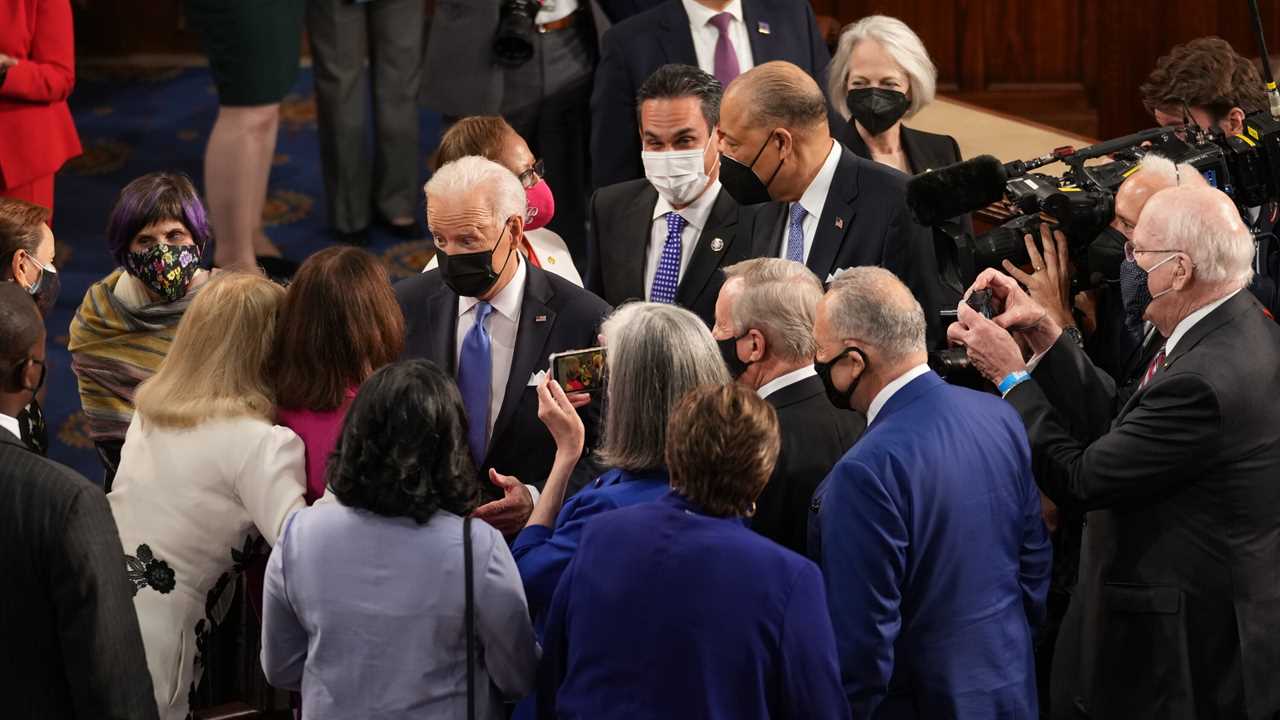
Now 100 days into his presidency, President Biden is driving the biggest expansion of American government in decades, an effort to use $6 trillion in federal spending to address social and economic challenges at a scale not seen in a half-century. Aides say he has come into his own as a party leader in ways that his uneven political career didn’t always foretell, and that he is undeterred by matters that used to bother him, like having no Republican support for Democratic priorities.
For an establishment politician who cast his election campaign as a restoration of political norms, his record so far amounts to the kind of revolution that he said last year he would not pursue as president — but that, aides say, became necessary to respond to a crippling pandemic. In doing so, Mr. Biden is validating the desires of a party that feels fiercely emboldened to push a liberal agenda through a polarized Congress.
The result is something few people expected: His presidency is transforming what it means to be a Democrat, even among a conservative wing of his party that spent decades preaching the gospel of bipartisanship.
“We’ve been very happy with his agenda, and we’re the moderates,” said Matt Bennett, a co-founder of Third Way, a Democratic think tank named after a governing style embraced by former President Bill Clinton that rejected liberal orthodoxy. “Some have said this is a liberal wish list. We would argue that he is defining what it is to be a 21st-century moderate Democrat.”
Mr. Biden trumpeted his expansive agenda again on Wednesday night in his first address to Congress, casting his efforts to expand vaccinations and pour trillions of dollars into the economy as a way to unify a fractured nation.
“We’re vaccinating the nation; we’re creating hundreds of thousands of new jobs,” he said. “We’re delivering real results to people — they can see it and feel it in their own lives.”
Mr. Biden, now 78, has pursued these sweeping changes without completely losing his instinct for finding the center point of his party. As the Democratic consensus on issues has moved left over the years, he has kept pace — on abortion, gun control, same-sex marriage, the Iraq war and criminal justice — without going all the way to the furthest liberal stance. Now, he is leading a party that accelerated leftward during the Trump administration, and finding his own place on the Democratic spectrum — the one with the most likelihood of legacy-cementing success.






